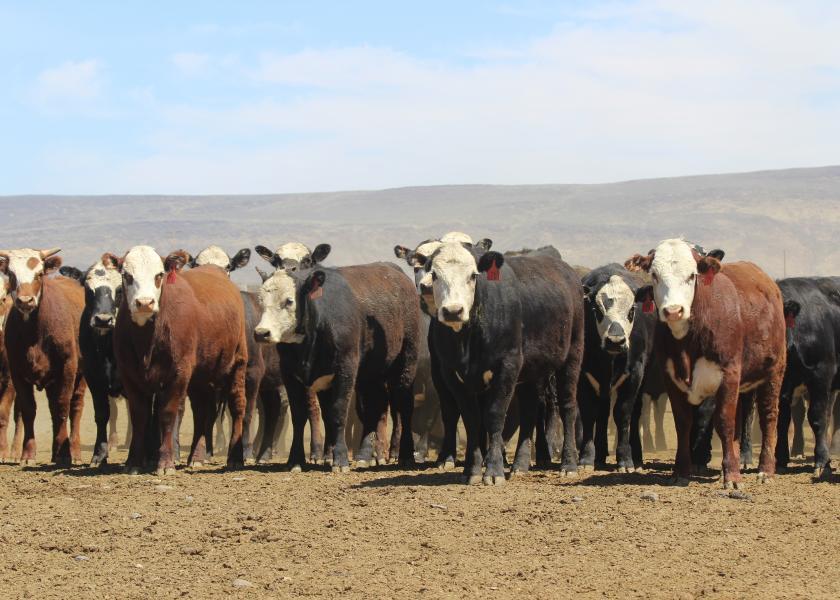Senators Revise Cattle Price Discovery and Transparency Act

Four Senators calling for legislation to reform U.S. cattle markets have released an updated version of the Cattle Price Discovery and Transparency Act.
The revised bill would establish 5-7 regions in the U.S. where minimum levels of fed cattle purchases must be made through “approved pricing mechanisms.” Violations of the regulation would result in a maximum penalty of $90,000 for packers that have slaughtered 5% or more of the nation’s harvest over the past five years. The bill would also create a publicly available library of marketing contracts.
The four Senators introducing the bill are: Deb Fischer (R-Neb.), Chuck Grassley (R-Iowa), Jon Tester (D-Mont.), and Ron Wyden (D-Ore.). The senators first introduced the bill in November.
“Our family farmers and ranchers have told us about the need for both robust price discovery and transparency in the cattle markets,” said Senator Fischer, a member of the Senate Agriculture Committee. “The updates to our legislation incorporate a variety of stakeholder feedback to achieve our goal of ensuring more fairness in cattle markets.”
Fischer said she hopes the Senate Ag Committee will hold a hearing on the bill in the coming weeks.
Senator Grassley said the revised bill comes after several months of working with staff at the U.S. Department of Agriculture to make technical changes that will allow them to best implement the bill.
“I frequently hear from Iowa’s independent cattle producers about their struggle to get a fair price for their cattle while the nation’s four largest packers operate with record profits. I pushed for hearings in the Senate’s Agriculture and Judiciary committees to shine a light on these unfair market practices, and I’ve continued working with a bipartisan group of senators to develop a solution,” said Grassley, also a member of the Senate Ag Committee and ranking members of the Senate Judiciary Committee.
“It takes several steps to improve cattle price transparency and will make much-needed market reforms to help independent producers in Iowa and across the country. This bipartisan bill is the best opportunity we have to make real reform in the cattle market this year, and I’ll continue to work with my colleagues to get this across the finish line,” Grassley said.
“Increasing price discovery will give producers more control and better information when they sell their livestock, and is a key step in making markets more competitive,” Tester said
“Oregon’s ranchers shouldn’t face an unfairly tilted marketplace that favors corporate meat packers and undercuts their small family businesses from producing nationally renowned beef for consumers. This bipartisan legislation shows how both parties can come together to level the playing field by restoring market fairness, efficiency, and transparency for U.S. cattle ranchers,” said Senator Wyden, Chair of the Senate Finance Committee.
The updated bill would:
- Require the Secretary of Agriculture to establish 5-7 regions encompassing the entire continental U.S. and then establish minimum levels of fed cattle purchases made through approved pricing mechanisms. Approved pricing mechanisms are fed cattle purchases made through negotiated cash, negotiated grid, at a stockyard, and through trading systems that multiple buyers and sellers regularly can make and accept bids. These pricing mechanisms will ensure robust price discovery and are transparent.
- Establish a maximum penalty for covered packers of $90,000 for mandatory minimum violations. Covered packers are defined as those packers that during the immediately preceding five years have slaughtered five percent or more of the number of fed cattle nationally.
- The bill also includes provisions to create a publicly available library of marketing contracts, mandating box beef reporting to ensure transparency, expediting the reporting of cattle carcass weights, and requiring a packer to report the number of cattle scheduled to be delivered for slaughter each day for the next 14 days. The contract library would be permanently authorized and specify key details about the contents that must be included in the library like the duration of the contract and provisions in the contract that may impact price such as schedules, premiums and discounts, and transportation arrangements.
Read the amended bill text.
Read updated one-pager on the bill.
Read an updated section-by-section summary of the bill.







